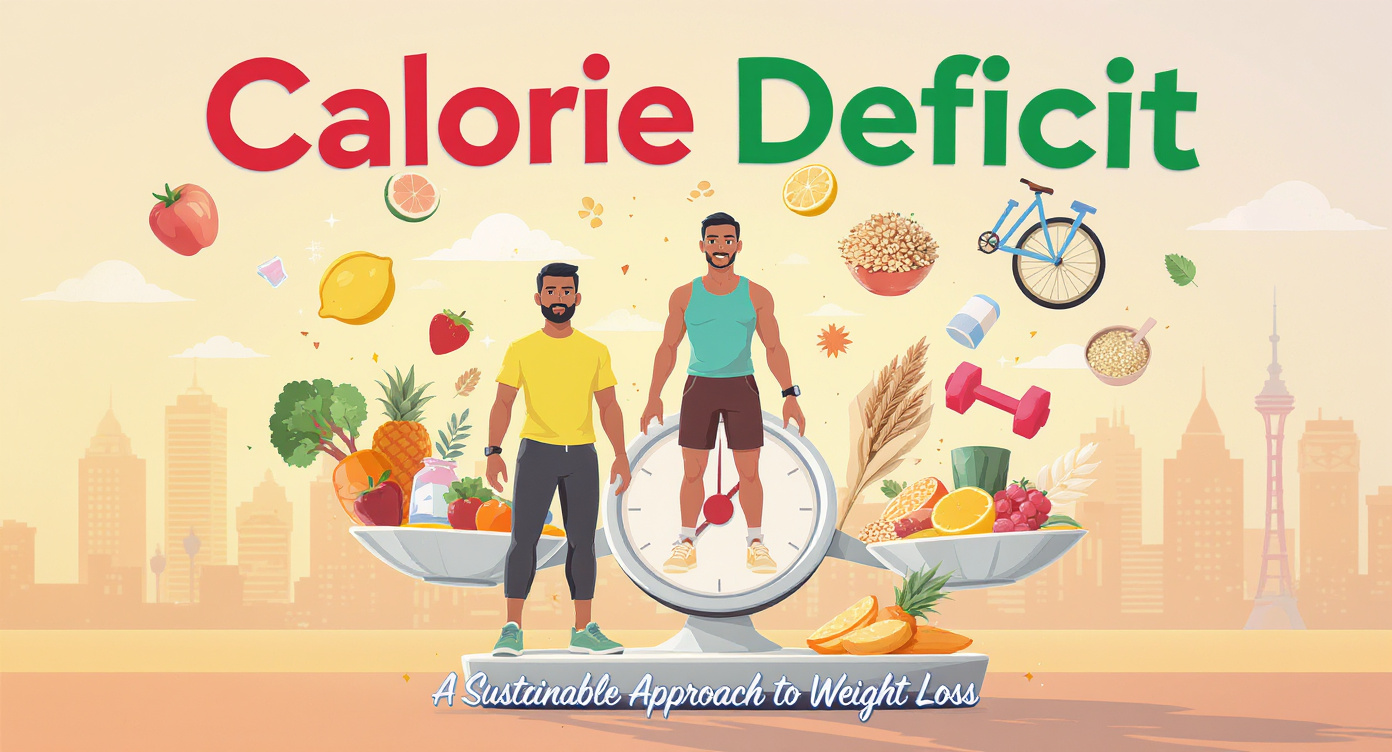
When it comes to losing weight, one term that often comes up is “calorie deficit.” It might sound scientific, but the idea is quite simple — and understanding it can be the key to effective and sustainable weight loss.
What Is a Calorie?
A calorie is a unit of energy. Your body needs calories to perform all its functions — from breathing and digesting food to walking and exercising. Every food and drink you consume provides a certain number of calories that supply energy to your body.

What Is a Calorie Deficit?
A calorie deficit happens when you consume fewer calories than your body burns in a day.
For example, if your body needs 2,000 calories daily to maintain your current weight, and you only eat 1,500 calories, you create a deficit of 500 calories.
Over time, your body starts using stored fat for energy to make up for that deficit — leading to weight loss.
How a Calorie Deficit Helps in Weight Loss
When you’re in a calorie deficit, your body doesn’t get enough energy from food. To meet its needs, it turns to its energy reserves — primarily stored fat.
As fat is broken down for energy, your body weight decreases. This is why maintaining a consistent calorie deficit over time results in gradual and healthy weight loss.
How to Create a Calorie Deficit
There are two main ways to achieve a calorie deficit:
Reduce Calorie Intake:
Eat fewer high-calorie foods like sweets, fried snacks, and sugary drinks. Choose nutrient-dense foods such as fruits, vegetables, lean proteins, and whole grains.

Increase Physical Activity:
Exercise helps you burn more calories. Activities like walking, running, cycling, or strength training can significantly boost your daily calorie burn.
Combining both — eating smarter and staying active — is usually the most effective and sustainable approach.
How Much of a Deficit Is Healthy?
A moderate calorie deficit of 500–750 calories per day is generally considered safe and effective.
This typically leads to a steady weight loss of about 0.5–1 kilogram (1–2 pounds) per week, which is sustainable for most people.
Avoid extreme deficits, as they can cause muscle loss, fatigue, and nutritional deficiencies.
Final Thoughts
A calorie deficit is the foundation of weight loss — no matter which diet plan or fitness trend you follow. The key is balance: consume fewer calories than you burn, but do it in a healthy, consistent way. Focus on nutritious foods, regular exercise, and patience — because real results take time.